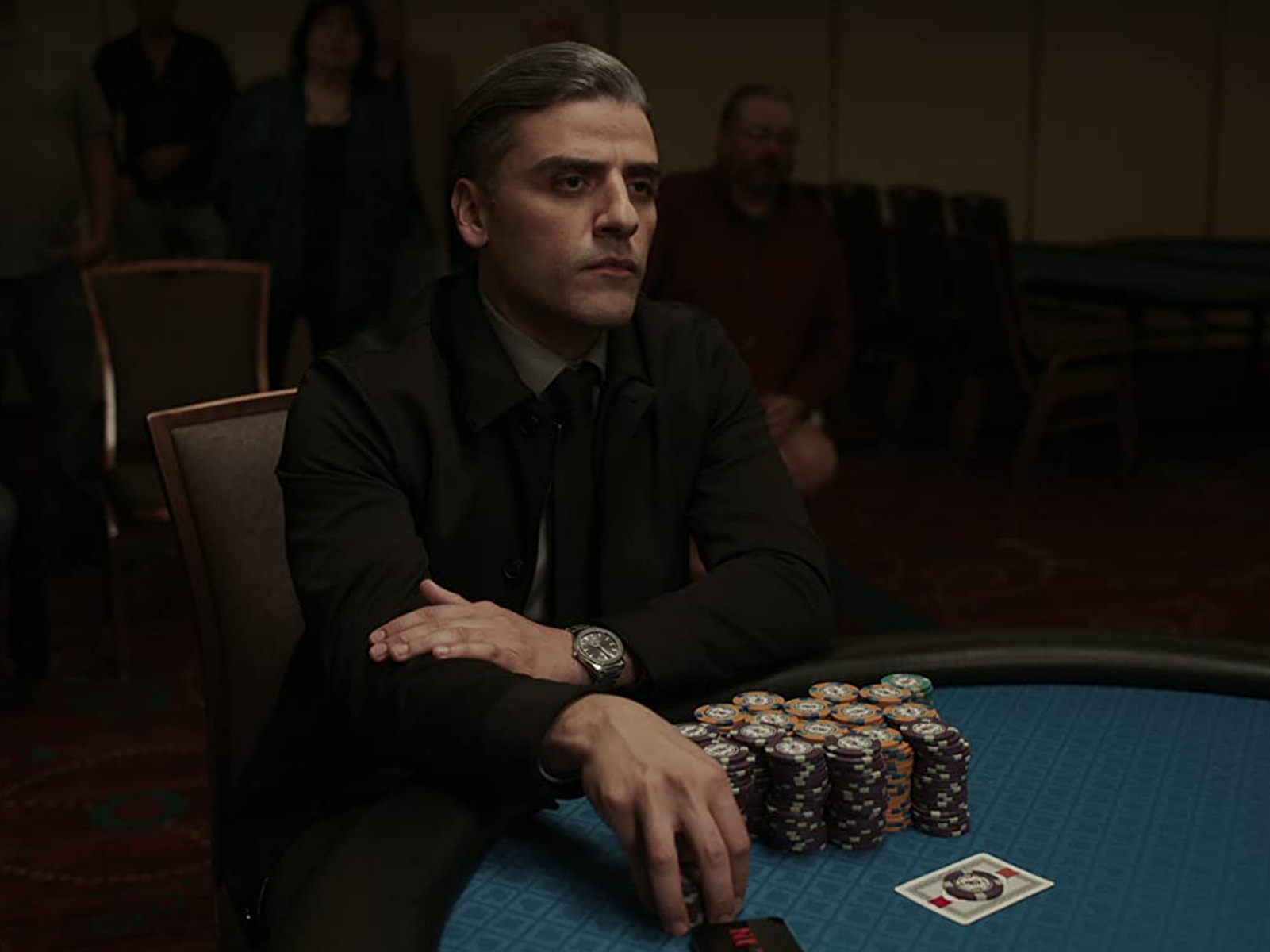
- Festivals
“The Card Counter”: All Bets are Off for Oscar Isaac and Paul Schrader
After Oscar Isaac graduated from Juilliard in 2005, he headed west to California where one of his first auditions was for acclaimed filmmaker Paul Schrader. Although the then 26-year-old actor booked the part, the film never got made. But patience is a virtue and, sixteen years later, the two finally got the chance to work together in the drama The Card Counter, making its world premiere at the Venice Film Festival.
The film follows the exploits of William Tell (Isaac), a gambler and former serviceman who just wants to play cards. Mysterious and quirky, his sole motivation is to move from casino to casino, make small wins, and stay off the grid. Even when offered the chance to move into the big poker games by an agent named La Linda (Tiffany Haddish), he politely declines. But his simple existence on the casino trail is shattered when he is approached by Cirk (Tye Sheridan), a vulnerable and angry young man seeking help to execute his plan for revenge on a mutual enemy from their past. Tell sees their chance encounter as an opportunity to make peace with his past; that is until this gamble cannot be controlled.
As with many of Schrader’s almost 20 past films, the core of the story is a character seeking redemption; but in The Card Counter the audience is immediately informed to the guilt of the man.
“I am always looking for occupational metaphors,” explains Schrader to the press. “That started with Taxi Driver and has continued throughout my career. There is this lack of responsibility in contemporary society. Society forgives Will but he cannot forgive himself. What he did was not just a crime.”
That wrongdoing is encased in the horrors of Abu Ghraib, which during the military prison where, during the early stages of the Iraq War, the United States Army and the CIA committed a series of human rights violations and war crimes against detainees, most notably extreme physical and sexual torture.
Emphasizing that he wasn’t making a film to redo history, or dissect American Imperialism, Schrader did acknowledge that he utilized American exceptionalism to navigate his main character’s arc. “You can’t get hung up on making a big statement. Make a small statement and let others make a big statement.”
If that sounds like a gamble, then the metaphor of bets and wagers could also be applied to his characters, each of whom seems to gamble with their own life, a personal concept not lost on them.
“I am not a big fan of gambling,” declares Haddish, whose career breakout was the comedy smash Girls Trip. “I will play for two hours with $20 dollars and then walk away. But I gambled years ago with my rent money to take an acting class. I took a chance on myself. I didn’t pay the rent and went homeless but I told my mother it would pay off in the long run.” Then the actress pauses for a second and soaks up the room. “It paid off. I am here in Venice.”
Isaac concurs, recalling how his own initial venture to New York landed him not only an audition for an off-Broadway play, but the possibility to audition for Juilliard, one of the premiere acting schools in the United States.
For the Golden Globe-nominated actor, who relishes the opportunity to step into the world of character ‘weirdness’, William Tell was a step beyond. “William is very mysterious and even though I read the script and understood his voice-overs, I thought the story was going someplace different … It was difficult to get a bead on the character.”
Schrader suggested he read the book The Body Keeps Score to help him find that rhythm, and while the insight assisted him into how the body processes trauma, Isaac had to do a bit more research to nail down the skill set of a seasoned gamester. He spent over a month with a card expert, learning not only his way around a deck but also basic tricks. Filming at actual casinos, Isaac would sneak away during his lunch break to play with the locals. His motivation was for his director to never have to cut from his face to someone else’s hands.
For Schrader, who sees a return to collaboration with Martin Scorsese after a 22-year absence (the Golden Globe-winning Director executive produced), acknowledges that it has never been easier to make a movie, the process now being cheaper and faster. “Anyone with an iPhone can make a movie,” he reveals, “but not everyone with a movie can make a living. I would hate to have to create a name for myself in this digital era.”

